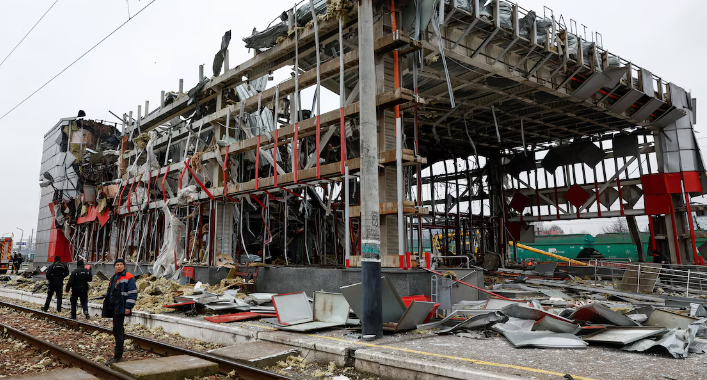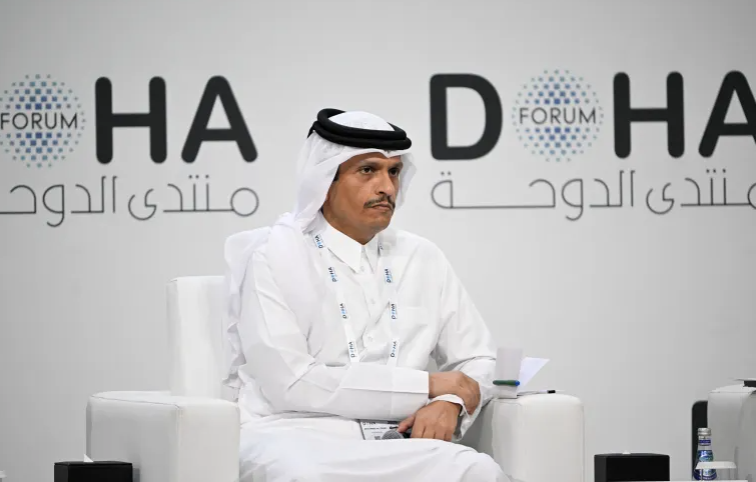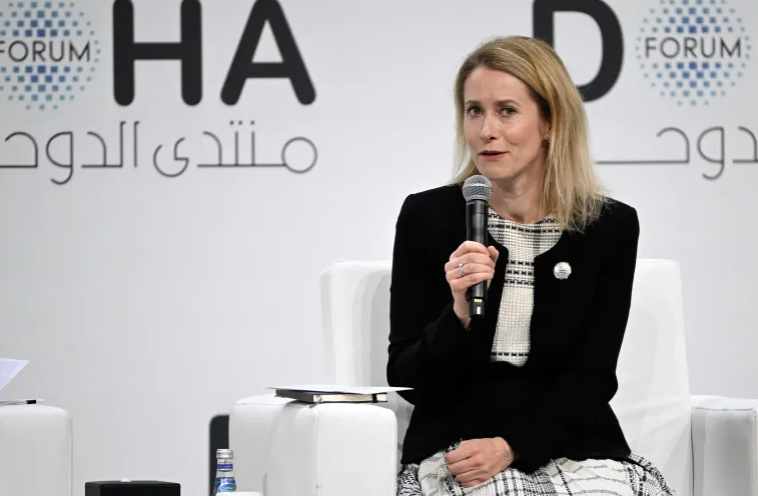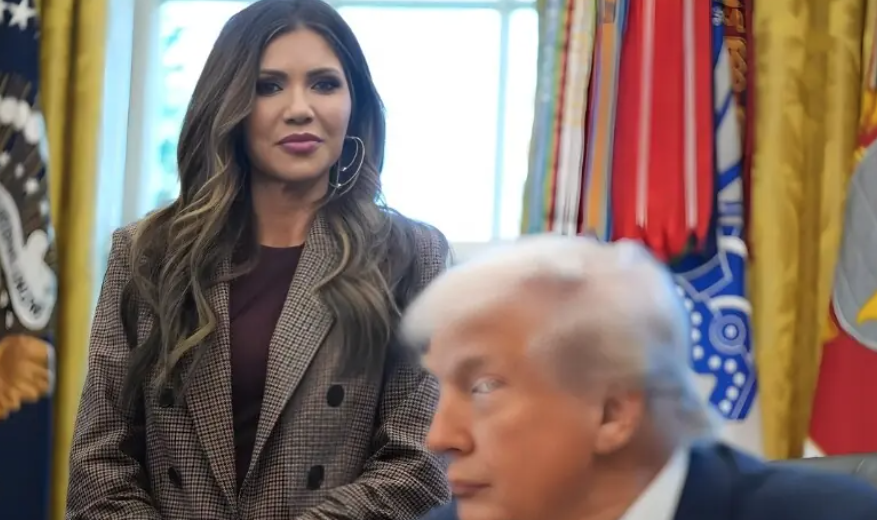WORLD NEWS
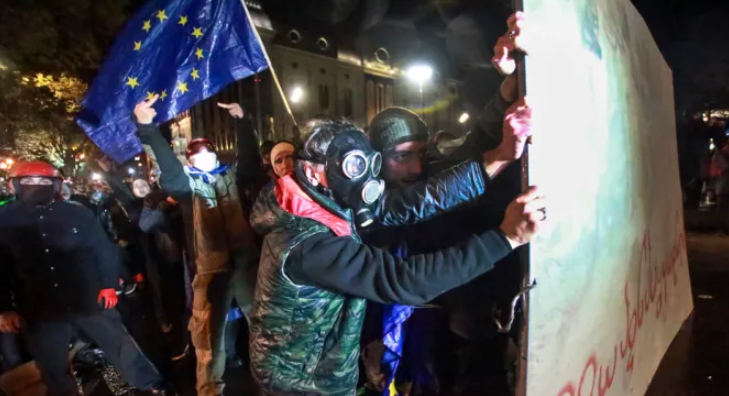
Clashes erupted between protesters and police in Georgia’s capital, Tbilisi, on Friday after the country’s governing party announced it would delay its European Union (EU) accession talks. Thousands of demonstrators gathered outside the Georgian Parliament to voice their opposition to Prime Minister Irakli Kobakhidze’s controversial decision to postpone the country’s EU membership bid until 2028, with a target of joining the bloc by 2030.
The protests followed Kobakhidze's announcement, which came shortly after the European Parliament issued a non-binding resolution criticizing the results of Georgia's disputed parliamentary elections in October. The European Parliament cited "significant irregularities" in the elections and called for a new vote along with sanctions against top Georgian officials, including Prime Minister Kobakhidze.
In response, Kobakhidze accused the EU of “blackmail,” stating that the government would suspend EU accession talks and would not accept any EU budgetary grants until the end of 2028. The Georgian government has faced mounting criticism for alleged democratic backsliding, with many accusing the ruling Georgian Dream party of growing closer to Russia rather than strengthening ties with the West.
President Salome Zurabichvili, a pro-EU figure who has been a vocal critic of the Georgian Dream party, condemned the government's actions. She said the ruling party had “declared not peace, but war against its own people, its past, and future.” Zurabichvili, who holds a ceremonial position, confronted the police during the protests, questioning whether they served the interests of Georgia or Russia, and criticized the disproportionate targeting of journalists and protesters during the crackdown.
The Interior Ministry reported that 43 people had been arrested, and 32 police officers were injured during the protests. Demonstrators threw fireworks and attempted to breach barricades outside Parliament. The Ministry also noted that some journalists covering the protests had been arrested, sparking concerns over press freedom in the country.
Zurabichvili has filed a lawsuit with the Constitutional Court, seeking to annul the recent elections, claiming they were rigged under Russian influence. Meanwhile, Georgian Dream's nomination of far-right politician Mikheil Kavelashvili to replace her as president is seen as another sign that the ruling party is moving further away from the EU and closer to Russia. Kavelashvili, a former footballer with known anti-Western views, is expected to challenge Georgia’s pro-European course.
Kobakhidze’s decision to suspend EU accession talks represents a significant setback for Georgia’s relationship with the European Union, which granted the country candidate status in December 2023. However, the EU has expressed concerns over a series of recent laws passed by Georgian Dream, including the “foreign agents” law, which closely resembles Russian legislation. Critics say these moves, along with restrictions on LGBTQ rights, are signs that Georgia is moving closer to Moscow.
Russian President Vladimir Putin recently praised the Georgian government’s stance on the "foreign agents" law, further deepening concerns in the EU about Georgia’s growing ties with Russia. Georgian Dream, initially seen as a pro-European party, has increasingly aligned itself with Moscow, especially since the war in Ukraine.
As the political crisis unfolds, Georgia’s path to EU membership appears more uncertain than ever, with the government’s ties to Russia continuing to grow stronger while protests against its policies escalate at home.
Suggested Hashtags:
#Georgia #EUAccession #GeorgianProtests #PoliticalCrisis #EuropeanUnion #GeorgianDream #ProtestsInGeorgia #RussiaTies #PoliticalUnrest #DemocraticBacksliding
